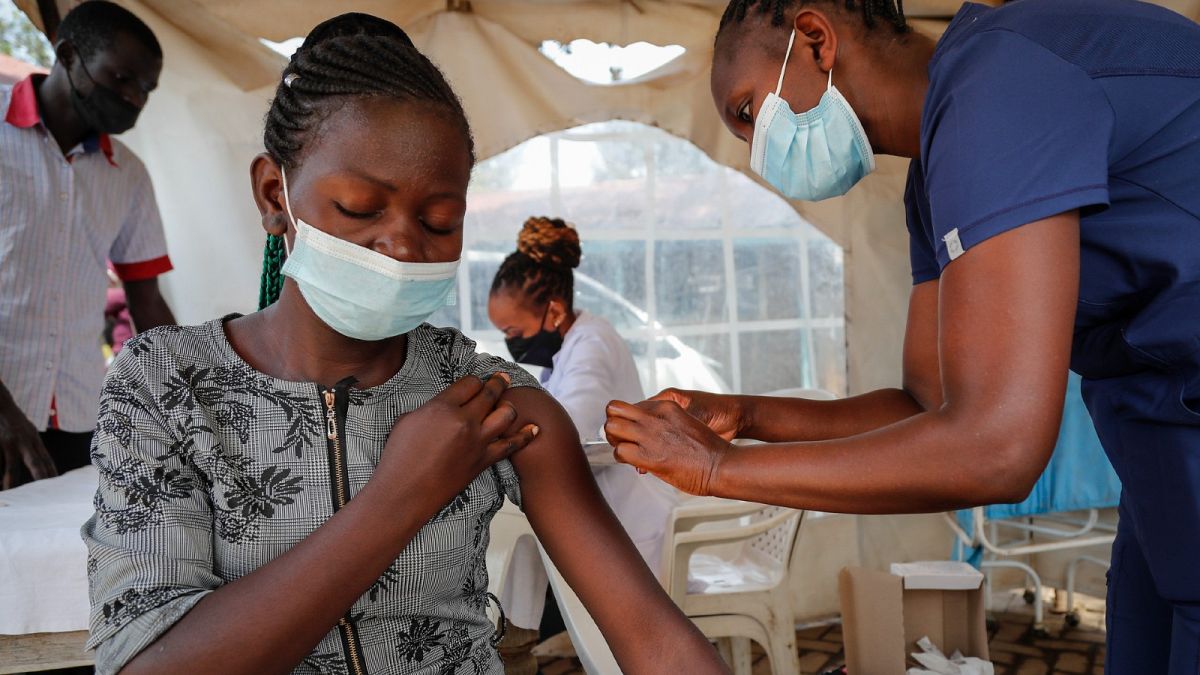African governments are, for the most part, making huge efforts to ensure that shots reach arms and doses are not wasted.
Last month, one of the world’s biggest vaccine plants— one that is expected to produce 1 billion doses of COVID-19 vaccines annually by 2025 — was launched in Cape Town. This was hailed by many as a milestone in efforts to reduce Africa’s reliance on the West for vaccines.
It also exhibits that South Africa’s medical expertise — thanks to which the world became aware of the Beta and Omicron variants — makes it one of the best hubs to supply the continent with much-needed doses. This, and other efforts to develop vaccine production in Morocco, Rwanda, Senegal, and other countries, are seen as bids for self-reliance in response to a global crisis that has seen rich countries hoard doses, block proposals to share vaccine IP, and fail to meet their foreign aid commitments, leaving only about one in ten Africans fully vaccinated.
This displays the enormous potential for African Union (AU) countries to be valuable actors in the global fight against COVID: an ethos that must be at the forefront as world leaders meet for the AU-EU summit this week.
In these global discussions and others, AU countries should be seen as partners in the fight against COVID rather than hand-out recipients. Misconceptions about African countries’ response to the pandemic abound, perpetuating the harmful narrative of the continent as a charity case. But the reality is a different matter. For instance, according to the non-profit group Development Reimagined, African countries, despite constraints, are making responsible investments in public health.
The NGO estimates that countries on the continent have allocated $63 billion (€55.5 billion) in their national budgets to COVID-19 in the 2020-2021 financial year alone, representing 2.3% of African GDP. Meanwhile, African countries are penalised for their spending, even if these expenditures are needed to respond to the global health crisis. For example, Ghana has just been downgraded by credit rating agencies for its debt rising to 82% of GDP.
What’s more, despite the difficulties of receiving doses in unpredictable quantities with little notice, African governments are, for the most part, making huge efforts to ensure that shots reach arms and doses are not wasted.
According to Dr John Nkengasong, director of the Africa Centres for Disease Control and Prevention, only 0.5% of the total vaccines received have expired across the African continent — far below other regions of the world, including France. When doses did expire, it was due in large part to the fact that many shipments of donated doses in 2021 arrived in countries within a few weeks of their expiry dates.
These realities underscore why the charity-driven global health response which has seen Africa continue relying on drip-fed foreign aid — the very model that has led to non-existent or fragile health systems in many African countries — must stop. Instead, we must rethink public health as a global good whose impacts and benefits transcend borders.
It is time we rethink endeavours around vaccines research, development, and production as public science, whose outcomes should be shared for the public good.
Ahead of the upcoming AU-EU summit, French President Emmanuel Macron said he would be in favour of a global license for coronavirus vaccines that would remove intellectual property barriers. At the very least, EU leaders must agree to clear the barriers to gaining the capacity, intellectual property and technology Africa needs to manufacture its own vaccine supplies. However, this is far less ambitious than the TRIPS waiver proposal from India and South Africa—which would not only cover patents, but other forms of IP as well—that the EU continues to block at the World Trade Organization.
This proposal to suspend intellectual property rules for all COVID-19 vaccines, tests and treatment has already been backed by over 120 nations but is being held up by the intransigence of countries including Germany who have prioritised protecting the profits of their own pharma industries.
EU governments should also use all available policy and legal tools to influence pharmaceutical corporations to share the vaccine technology and know-how via the World Health Organisation’s COVID Technology Access Pool ( C-TAP), a voluntary global intellectual property pool, and the South Africa mRNA hub. The recent agreement between Spain and the WHO to develop an antibodies test is a good example of the kinds of C-TAP partnerships that are possible.
French President Emmanuel Macron has lauded the EU's track record on vaccine exports, but the reality is that of 10 billion doses administered worldwide by the end of January, 77% of these have been administered in the wealthiest countries.
This enduring vaccine injustice should be a blot in the conscience of humanity. If this inequality persists, dangerous variants will continue to circulate, threatening lives, health, and economic recovery.
The COVID-19 pandemic has unmasked the self-interest that underpins global dynamics favouring the rich Global North, and harm us all. It is time to break this cycle of dependency and replace it with global health cooperation rooted in justice and mutual respect.
Aggrey Aluso is the Health and Rights programme manager at the Open Society Initiative for Eastern Africa.
